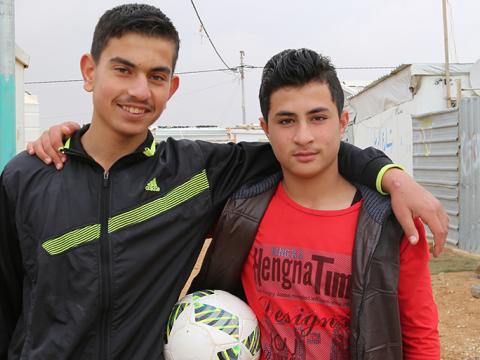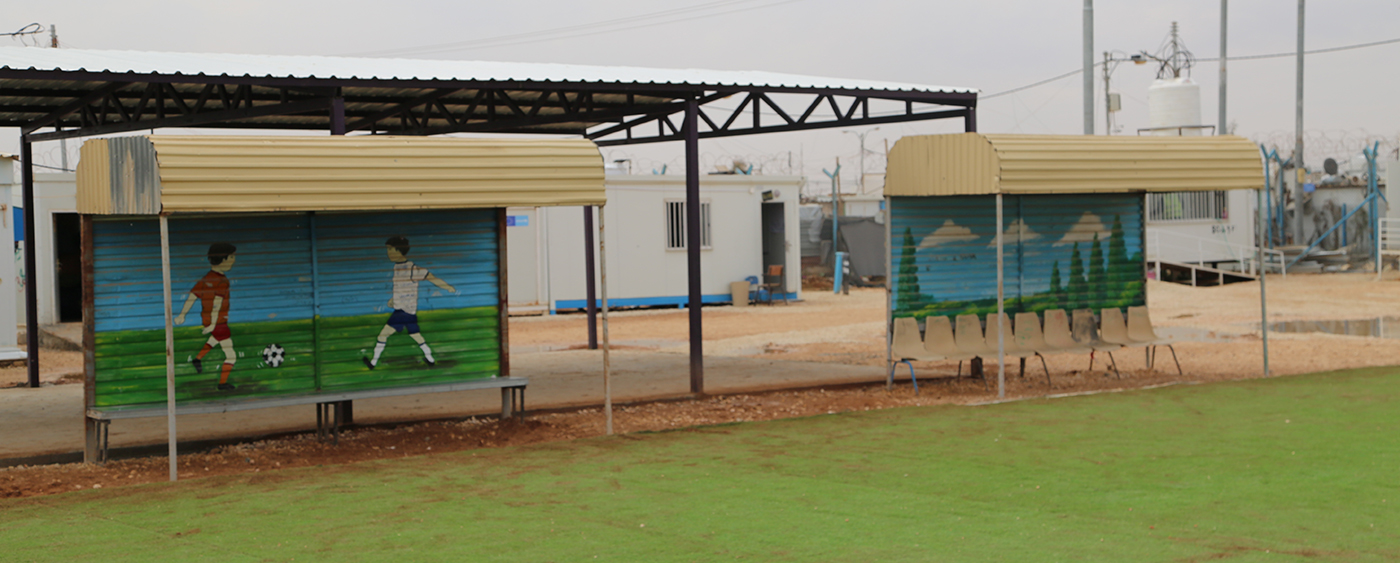Stories After Syria: Goals for Syrian refugees on the pitch and beyond

When it rains in Za'atari Refugee Camp, it's chaos.
"Everything gets dirty," explains Obada, 15, who has lived in the camp for the last five years. In an area made of dirt roads that spans more than 5 square km and holds 80,000 people, a bit of rain can definitely cause disruption. Even if you're lucky enough to have proper shoes, you can barely walk as your feet completely sink into the muddy ground.
But Obada has lived in the camp for so long that he has a hard time remembering what it was like outside the camp or in his home country, Syria. Which explains why struggling to walk down the streets of his community isn't what bothers him about the rain.
"When it rains… the court gets all muddy," he says. The court, being the place where he goes to play football every single day.
The worst part of living in the refugee camp, according to Obada, is when the football pitch is closed.
"Football is fun. I get excited," he said. It's also the sport that allowed him to make friends at the camp, like with 16-year-old Yousef.
"We became very close friends. We became brothers," said Obada.
Yousef feels the same way. "Football got us a lot of new friends. I have close friends now. It's fun," he says.
Yousef has also spent the last five years at the camp and has few memories of his life in Syria.
Living in a community surrounded by barbed wire that shuts down when it rains, is all they know. Their biggest concern is how the Syrian national football team is performing.
"I hope Syria will get to the world cup in four years," says Obada. "We almost made it this year."
World Vision has built football pitches in refugee camps because it's known to help with the physical and mental health of children dealing with the daily stressors of being displaced. It also helps form bonds, which are integral to give children in these situations a sense of belonging.

